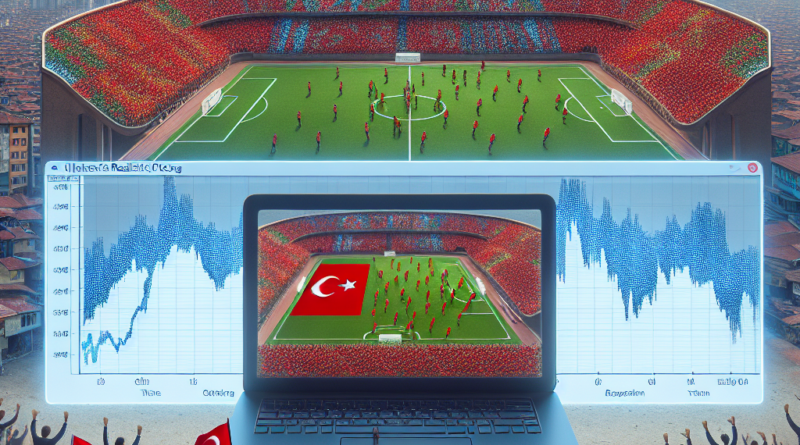Why Turkey under Erdogan is Betting on Soccer (and Following China’s Xi Playbook)
Mauro Icardi and the Rise of Turkish Football
Mauro Icardi, Dries Mertens, Edin Dzeko, and Victor Osimhen are just a few prominent footballers who have chosen to play in the Turkish Süper Lig, the country’s top football division.
This past summer marked a significant period for Turkish clubs like Galatasaray, Fenerbahçe, and Beşiktaş, which emerged as major players in the transfer market.
While not quite on the same level as the Saudi Arabian clubs fueled by vast oil wealth, Turkish teams made headlines with their impressive transfers.
This raises a compelling question: how were these clubs able to attract such high-caliber talent?
The Financial Paradox of Turkish Football
Interestingly, the scenario is perplexing, especially considering that just a few years back, a financial apocalypse was predicted for Turkish football.
In 2021, the so-called giants of Süper Lig—Beşiktaş, Fenerbahçe, Galatasaray, and reigning champions Trabzonspor—were collectively burdened with debts of about €1.7 billion.
In 2019, the then-president of the Turkish Football Federation, Yıldırım Demirören, asserted that “Turkish clubs are no longer financially sustainable.” Factors like the economic crisis in Ankara, the plummeting Turkish lira, international tensions, and the COVID-19 pandemic were anticipated to diminish the prominence of Turkish football.
However, the reality turned out to be quite different.
A Resurgence Fueled by Sponsorships
The resurgence of Turkish football is noteworthy.
An anonymous agent recently told The Athletic, “I don’t know where they’ve found the money” to fund these acquisitions.
The funds weren’t derived from lucrative television deals since the Süper Lig lacks international appeal, nor from merchandising.
Some financial influx has come from selling players and participating in the UEFA Champions League, but the most significant contributions stem from sponsorships.
For instance, Galatasaray secured a three-year €15 million deal with Azerbaijani state oil company SOCAR, becoming its shirt sponsor for European competitions.
Moreover, Galatasaray renewed its primary sponsorship deal with the car rental company Sixt, estimated at €100 million over five years, and negotiated new naming rights for its stadium with Rams Global Construction.
Leveraging Real Estate
Another lucrative venture for Galatasaray came from real estate.
In January, the club moved its training facilities to a new site in Kemerburgaz, north of Istanbul, allowing the former base in Florya to be transformed into luxury residences expected to yield around €455 million once sold.
Football as a Tool for Political Influence
In Turkey, football and populism go hand in hand.
Clubs that attract star players receive enthusiastic support from fans—and that can translate to increased power and prestige.
Financial mismanagement often takes a back seat, as sponsors line up to bolster the largest clubs.
Turkish President Recep Tayyip Erdoğan has a vested interest in promoting football as a means of soft power on the international stage.
The more successful these clubs become, the more Turkey can capitalize on their visibility.
However, there’s a cautionary tale that Erdoğan and other officials should heed: the rise and fall of Chinese football.
Between 2013 and 2017, China, with government backing, heavily invested in its football scene, only to retract later due to overspending.
Unlike Chinese clubs, Turkish teams have a rich heritage, yet they risk tarnishing their reputations if they continue to stretch their financial limits without prudent management.




